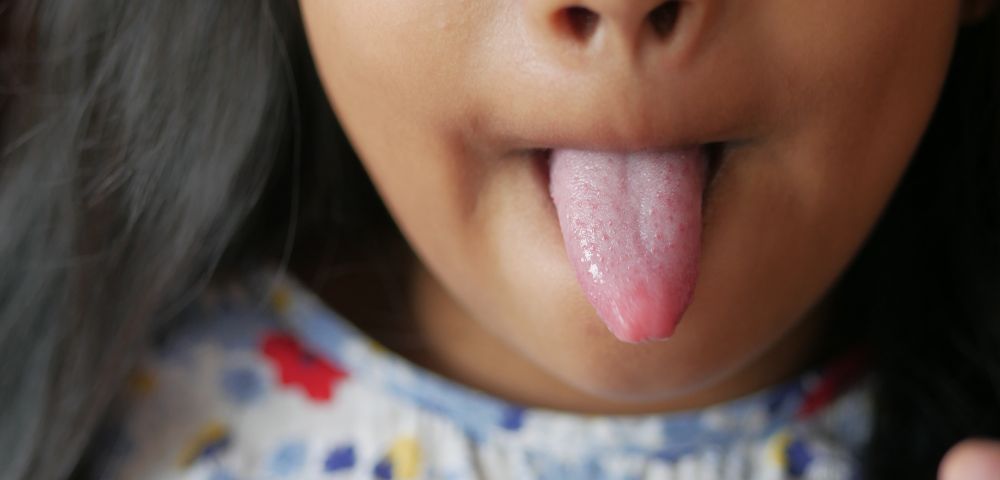If you were asked to list aspects of good health, you’d probably pick things like diet, exercise and sleep.
These take conscious, deliberate effort. You must pick the apple and not the pie. You must lace up your trainers and go for a run. You must turn off the TV and go to bed early.
But what about breathing? You do that about 22,000 times each and every day, mostly without thinking.
Pause for a moment now and check – are you breathing through your nose or your mouth? The answer to that could have important implications for your health.
Is mouth breathing bad?
Yes. It deprives your body of the benefits of nasal breathing.
Breathing through your nose helps to:
- FIlter out allergens and pollutants, using tiny nasal hairs
- Moisten air before it reaches your throat and lungs, using tiny structures called turbinates
- Gradually warm the air you breathe until its closer to body temperature before it reaches your lungs, making it easier for your tissues to absorb.
Mouth breathing has been linked to a range of health issues.
Mouth breathing and dental issues
Chronic mouth breathing can dry out your mouth, reducing saliva production – saliva you need to neutralise acids and wash away food particles and bacteria.
In children, chronic mouth breathing may cause inflamed gums, tooth decay and increased level of dental plaque.
Chronic mouth breathing can also affect your child’s facial structure. They’re more likely to have a long face, which can mean a narrow palate and crooked teeth (malocclusion). If mouth breathing isn’t identified and addressed early, it can increase the need for expensive orthodontic treatment like braces.
Bad breath from mouth breathing
Nobody wants bad breath! We’d much rather be minty fresh.
Bad breath may happen for a number of reasons but one recognised cause is a dry mouth. Saliva helps to cleanse your mouth and remove particles that cause bad odours. Breathing through your mouth dries it out and increases the risk of bad breath.
Mouth breathing and sleep disorders
Mouth breathing is linked to sleep issues like snoring and sleep apnoea.
In about 85% of cases, mouth breathing happens because it’s the only way you can get enough air while sleeping. It’s hard to breathe through your nose when sleeping if you have enlarged adenoids or a stuffy nose due to allergies. It’s worth talking to your doctor or dentist about these issues and arranging treatment to address the underlying cause of mouth breathing.
Mouth breathing and mood
When you wake up feeling rested and refreshed, you’re more likely to be in a good mood and have the energy you need for your day.
If you mouth-breathe while you sleep, you may not be getting enough oxygen into your lungs and bloodstream. You may also wake more often throughout the night, meaning you don’t enjoy as much deep, restorative sleep.
As a result, you (or your child) may struggle with:
- Brain fog
- Mood swings
- Irritability
- Concentration.
Are you a mouth breather?
- Is your mouth often dry?
- Do you have bad breath?
- Are you experiencing dental issues like gum disease or cavities even though you clean your teeth regularly?
- Do you snore?
- Do you often feel tired or feel that you sleep poorly?
- Is it hard to breathe through your nose when you try?
If you answered no to each of these questions: Looks like you’re not experiencing any of the issues commonly linked to mouth breathing. If you’re concerned about it, you might wish to explore our nasal breathing range.
If you answered yes to some or all of these questions: Looks like mouth breathing might be an issue for you. You might wish to talk to your GP and explore our nasal breathing range.
[shortcode id="66baabb1d54b75b3819f991f" name="Lip tape + Nasal Strip Bundle" layout="Grid"]
Recognising and treating mouth breathing
Unfortunately, mouth breathing isn’t always identified. Instead, doctors, dentists or psychologists may treat the end result of it – removing enlarged adenoids or tonsils, filling tooth cavities, prescribing sleep or mood medications, fitting braces or managing behavioural issues.
Those may all be helpful and necessary steps. But the underlying problem remains. So, how do you address mouth breathing?
- Notice your breathing. Get into the habit of checking your breathing throughout the day. Are you breathing through your nose or your mouth?
- Assess how easy it is to breathe through your nose. If your nose always feels blocked, then see your GP – you may have allergies or another issue that needs to be addressed to clear your nasal passages so you can breathe comfortably through your nose. You can also try Myospots nasal strips, which stretch and widen your nostrils to reduce snoring and make it easier to breathe through your nose while you sleep.
- Train yourself to breathe through your nose: Myospots tongue exercise spots are small, dissolvable spots that adhere to the roof of your mouth, encourage your tongue to rise and rest there. That immediately closes your mouth and encourages you to breathe through your nose, helping you break the habit of mouth breathing. You can also try our stretchy lip tape, which helps to keep your mouth closed while you sleep.
Hopefully, with the right support, you’ll be able to break the habit of mouth breathing and improve your health and wellbeing.
References
- Lung Foundation Australia, How your lungs work, https://lungfoundation.com.au/lung-health/protecting-your-lungs/how-your-lungs-work/#, [Accessed 19 July 2024]
- Cleveland Clinic, Mouth breathing, https://my.clevelandclinic.org/health/diseases/22734-mouth-breathing, [Accessed 19 July 2024]
-
Mummolo S, Nota A, Caruso S, Quinzi V, Marchetti E, Marzo G. Salivary Markers and Microbial Flora in Mouth Breathing Late Adolescents. Biomed Res Int. 2018 Mar 5;2018:8687608. doi: 10.1155/2018/8687608. PMID: 29693018; PMCID: PMC5859862. https://www.ncbi.nlm.nih.gov/pmc/articles/PMC5859862/, [Accessed 19 July 2024]
-
Grippaudo C, Paolantonio EG, Antonini G, Saulle R, La Torre G, Deli R. Association between oral habits, mouth breathing and malocclusion. Acta Otorhinolaryngol Ital. 2016 Oct;36(5):386-394. doi: 10.14639/0392-100X-770. PMID: 27958599; PMCID: PMC5225794. https://www.ncbi.nlm.nih.gov/pmc/articles/PMC5225794/, [Accessed 19 July 2024]
- Mayo Clinic, Bad breath, https://www.mayoclinic.org/diseases-conditions/bad-breath/symptoms-causes/syc-20350922, [Accessed 19 July 2024]
- Sleep Foundation, Is sleeping with your mouth open bad? https://www.sleepfoundation.org/snoring/sleeping-with-mouth-open, [Accessed 19 July 2024]




